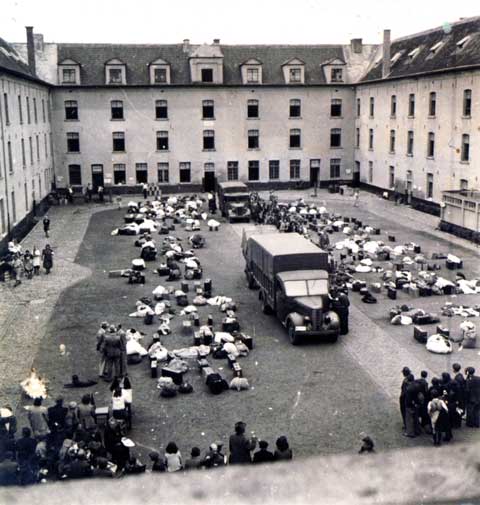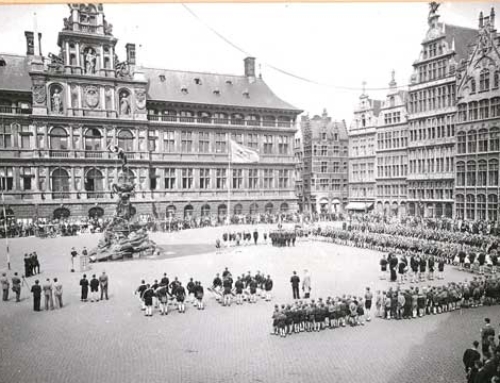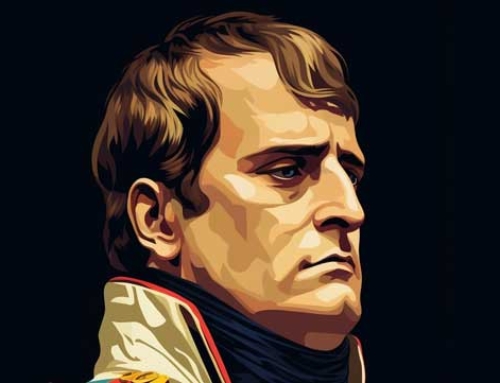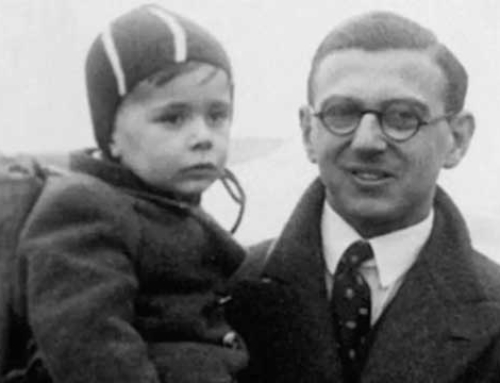What is the role of Kazerne Dossin exactly? Let’s look at it through the lens of tragic events that occurred a few years ago in Paris and Brussels.
The perpetrators of the attacks on ‘Charlie Hebdo’ a Jewish supermarket in Paris, Brussels Airport and a Brussels metro station a few years ago were not crazy. They were indoctrinated by an ideology that preaches lack of freedom, just like the Nazis who exterminated thousands of Jews in Auschwitz seventy five years ago ‘for the good cause’.
Every year on 27 January we commemorate the liberation of Auschwitz, seventy five years ago now. Strangely enough, there’s an enormous attention for the First World War, while in 2020 little attention is paid in Belgium about what happened in 1945.
Nevertheless, the Second World War was much more than the First, a struggle for democracy and for the basic values of our society based on human rights. Our human rights have been linked to the European Enlightenment since the eighteenth century. They are like a secularized religion, born out of the separation of Church and State, and from which democratic forms of state could develop. After the horror of Auschwitz, the concept was further refined and enshrined in international law. Human rights are therefore not universal. Many countries cherish a political system that explicitly rejects the concept. Just think of China for instance.
Auschwitz unfortunately seems to have a universal dimension. The six million Jews systematically exterminated by the Nazis, including women and children, were not the last genocide in history. A long list of systematic exterminations in the context of crimes against humanity and genocides also follows after 1945.
Auschwitz shows what a state system that does not accept human rights can lead to in extremis. But our analytical framework is obscured when we turn mass murderers into ‘lunatics‘. Everywhere in Europe, politicians used words like ‘fou‘ and ‘madness‘ in the terrible attacks on Charlie Hebdo and the kosher supermarket in Paris, and also in the murder at the Jewish Museum of Belgium. However, the perpetrators were not madmen, nor were the Nazis who systematically shot and killed Jews at the execution pits. (Which does not detract from the fact that in such extreme contexts certain pathologies are more prevalent).
Some of the perpetrators of Auschwitz found what was going on there quite gruesome, but all of them felt that by murdering people because they were Jewish, they were collaborating in a morally elevated social plan. The perpetrators of Auschwitz had a different moral frame of reference than ours. In the case of the Islamic state and its many variants, you see exactly the same thing: for those perpetrators, the killing of certain groups is the norm, indeed the lofty task that must result in a better world.
A war of values
Today, seventy five years after the liberation of Auschwitz, and soon after the end of the Second World War, we must realize more than ever that this was a war of values. And we see it again today, in a different guise, with different ideologies, which have this in common with Nazism: the violence they produce are extreme excesses of traditionalism, the doctrine against the Enlightenment, which assumes that man is by nature unfree and unequal, and in which, in the organisation of the state, the well-defined group takes precedence over the possible rights of the individual.
That is why we need to focus strongly on educational projects. In French-speaking Belgium, after the attacks, an interesting debate arose about civic education, about the basic values of our society. On the Dutch-speaking side, former Minister of Education Hilde Crevits (CD&V) signed a declaration of commitment with the education networks in Museum Kazerne Dossin on the education of the Holocaust and crimes against humanity during the Second World War, in order to gain insight into the processes and mechanisms behind these forms of violence.
Much more difficult is the deradicalisation of the small groups of extremists. Followers should be well accompanied when the euphoria of battle could turn into doubt and disappointment.
Mass violence only occurs in contexts of extreme polarisation, and therefore we can all contribute to pacification by not lapsing into one-sided polarisation. This is a task at home, in the workplace and everywhere we go. It is also a task for the media as a whole and for politicians. Kazerne Dossin has a clear role in this.






